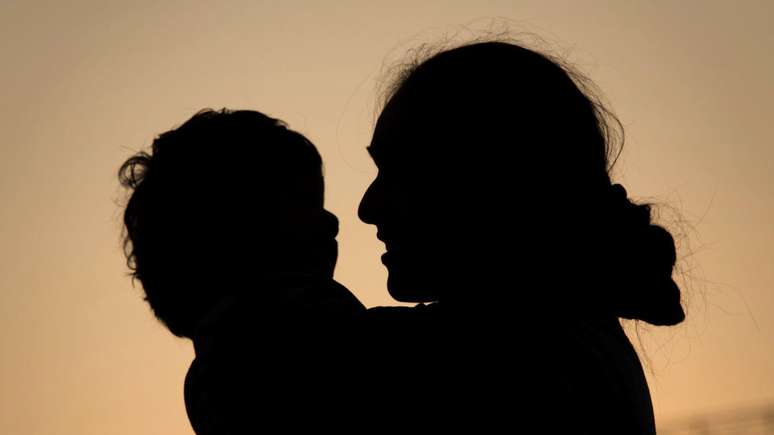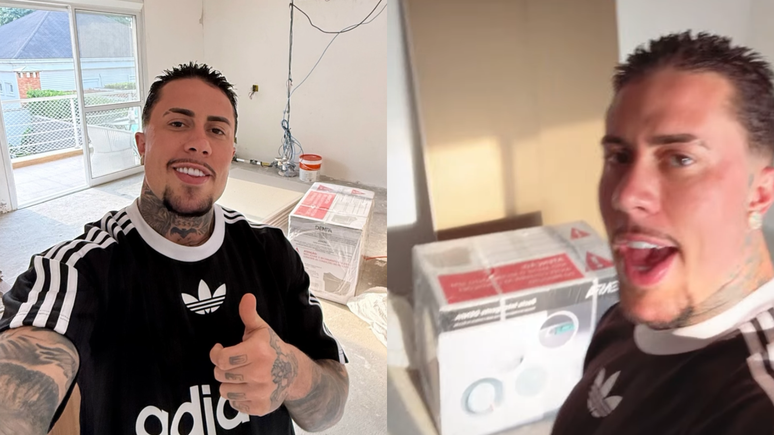Experts warn that toxic parenting, often characterized by narcissistic and controlling behaviors, can have serious long-term effects. This can lead to self-esteem and relationship problems in adulthood.
“My parents made me depressed: I cried almost every day. So I decided to ignore them.”
It’s not very common to hear this from a daughter, especially so soon after becoming a mother herself.
But Sarika, a 30-year-old Malaysian woman, says her relationship with her parents has reached a breaking point after years of living with their “toxic behaviour” – which she says has affected her mental health.
“It affected me a lot, especially during pregnancy. I think even my baby, in my belly, could have heard me cry,” she said.
Sarika has limited contact with her parents, but the decision to distance herself from her mother and father was not an easy one.
“The guilt is always there,” he says.
Sarika is not alone.
Ashley, from Kenya, told the BBC: “I would definitely describe my dad as a narcissist. He never showed up to school, he didn’t even show up to my graduation. He always had an excuse.”
According to the 25-year-old, despite her father’s absence, he often complained about almost everything about her.
“What really helped protect me from his toxic behavior was my mom. She did everything to the best of her ability,” Ashley said.
“Their marriage ended a long time ago, but my mother remained attached to him. Because in most African cultures, divorces are a completely different thing than in Western cultures,” she added. “Now he mostly calls to ask me if I got a job so I can buy him something.”

Ashley and Sarika live thousands of miles apart, but they have a lot in common.
The two report that their parents, usually absent when necessary, nevertheless try to control them, interfering in their decisions regarding career, social life, relationships and marriage.
Videos are also circulating on TikTok and other social media platforms in which other people say they have cut off contact with their parents. The attitude is justified by what they call “toxic behavior” of parents, which causes constant guilt and fear since childhood.
“The number of people seeking professional help for damage caused by toxic parents is not just common, it is rampant,” says Ayo Adesioye, a psychotherapist registered with the British Association for Counseling and Psychotherapy (BACP).
Although the term “toxic” is used more than ever, what does it mean?
What is a “toxic parent”?
According to Unicef, the United Nations children’s agency, “positive parenting is not limited to a method, a set of rules or a style; it is a belief, a way of life. Children must be treated with respect, free from fear of violence and shame, and guided with loving encouragement.”
While there is no official definition of “toxic parenting,” the term is widely used to loosely describe a set of negative characteristics that run counter to “positive parenting.”
“We typically label something as toxic when it is a recurring pattern of behavior rather than an isolated event.”
For example, asking your child if he has a partner is not in itself problematic, according to the expert. But if the question is part of a pattern of controlling or abusive behavior, the question takes on greater meaning for the child.
“Sometimes parents do this unintentionally, without knowing what they are doing, due to their lack of self-awareness, knowledge and education,” explains Adesioye, who is also an expert on domestic violence.
A 2013 UCLA (University of California, Los Angeles) study found that people with high levels of childhood stress were more likely to develop certain health risks in adulthood, such as high cholesterol, high blood pressure and diabetes.
Controlling, narcissistic and other types
Adesioye describes the two most common types of toxic parenting she sees in her practice.
First, there are controlling parents, who can interfere with their children’s academic career, work life, or relationship choices by setting unrealistic expectations and standards.
Then there are narcissistic parents, whose number one priority is not their children, but themselves.
He says the characteristics of these two types often overlap.
However, the list of types of toxic parents goes on, said Alyson Corner, a UK-based consultant clinical psychologist.
After retiring from the NHS, she launched a website, myhorridparent.com, with survival advice for young people affected by toxic parents, with the aim of helping them get on with their lives.
According to her, some of the other types are:
- Overwhelming mothers: who make decisions for their children without asking
- Angry Moms: Who Criticize Almost Everything Their Kids Do (And Let Their Kids Know)
- Jealous mothers – who are missing something in their lives and want to experience it through their children
- Competitive parents – who can become mean and critical if their children do better than them
- Angry parents: They have a hot and aggressive character and lose control over small things
- Submissive fathers: Leave all decisions and responsibilities to mothers
Alyson Corner says that when she listens to the “tragic and heartbreaking stories” she receives, she sometimes finds herself having to help victims by providing international suicide helplines if necessary.
“It could be really bad,” he told the BBC.

Cultural taboo
Sarika tried to talk about the issue with a third person close to her family – “someone who doesn’t judge,” she says – but she says that in the end everyone blamed her.
“Our culture makes us think that children are wrong and parents are always right. People often say there is no smoke without fire,” he added.
According to Professor Cheris Shun-ching Chan, a sociology specialist at the University of Hong Kong, various socioeconomic factors may also contribute to the phenomenon.
For example, he argues that China’s one-child policy, which limits most families to having just one child, can put pressure on children because their parents have no one to trust.
“And that little girl is actually under even more pressure to meet her parents’ expectations because her parents have really sacrificed so much or done everything for her,” she told the BBC.
Meanwhile, many parents seek emotional dependence on their children, who constantly worry about them, especially if the parents have a failed marriage or if the father is having an extramarital affair, explains Professor Chan.
“I think it’s also a kind of toxic parenting, and it would be even harder for children to be open about it,” she adds. “Under these circumstances, some children become counselors to their mothers.”

According to Ayo Adesioye, some of the long-term effects that can be observed in his adult patients due to toxic parenting are self-esteem issues, chronic shame, harsh self-criticism and lack of self-compassion, need to constantly please, difficulty asking for help, and inability to feel safe in relationships.
How to deal with toxic parents
Sarika says her relationship with her parents became extremely toxic after marriage, which her parents didn’t approve of.
“It seems like my parents did everything for me. I didn’t do anything for them. ‘You’re a disgrace to my family,’ that’s what my father said. At one point, I thought that I probably I was wrong,” he adds.
According to Asha Patel, clinical psychologist and founder of Innovating Minds, a social enterprise providing psychological support to children and young people in the UK, it is normal to feel guilty about having toxic parents, but prioritizing your own wellbeing is crucial.
“No one else cares about your mental health,” he adds. “So the only person who can do this is you.”
Ayo Adesioye says that without engaging in unnecessary arguments with parents, adult children should set clear boundaries, acknowledging to themselves that they are no longer children.
“I think that’s what gets lost. I see it a lot in my practice. You go back to being a child and forget that you’re an adult.”
Ashley has taken this advice and chosen to set clear boundaries with her father, prioritizing his mental well-being, while Sarika is now determined to be a good mother to her newborn daughter.
“I just don’t want to be like my parents. I want to support her a lot, do my best and let her decide her own life,” he said.
This report was written and reviewed by our journalists using artificial intelligence assistance in translation, as part of a pilot project.
Source: Terra
Ben Stock is a lifestyle journalist and author at Gossipify. He writes about topics such as health, wellness, travel, food and home decor. He provides practical advice and inspiration to improve well-being, keeps readers up to date with latest lifestyle news and trends, known for his engaging writing style, in-depth analysis and unique perspectives.









